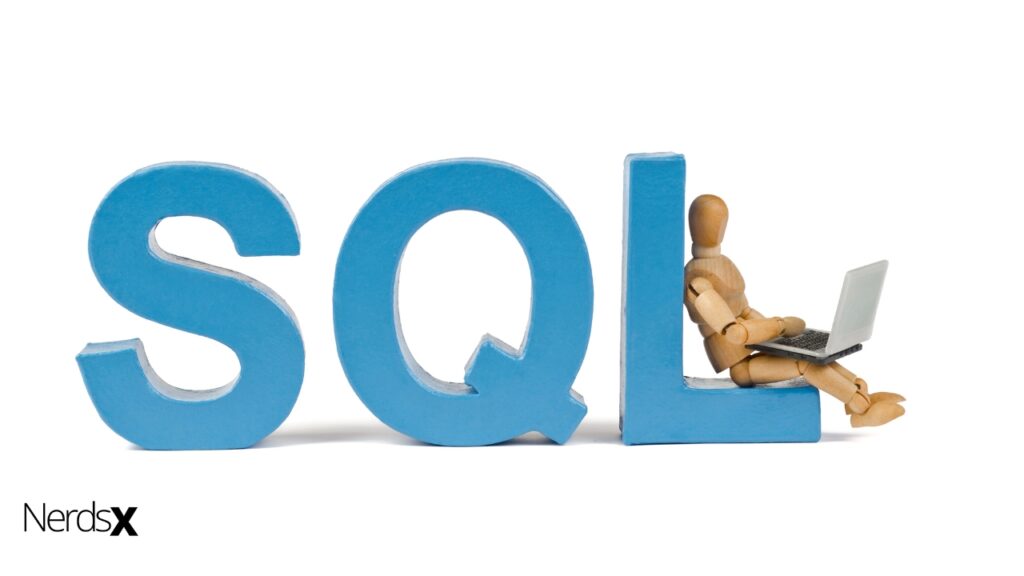SQL (Structured Query Language) abilities are required to further your profession as a database developer, administrator, or analyst. SQL abilities help you create and maintain complex database and information solutions in great demand in current times.
Still, you might be thinking if learning SQL is tough.
However, with enough effort and the appropriate method, you can master SQL in no time. That is the most effective approach to learn SQL and develop your database administration profession.
What Is SQL And How Does It Work?
SQL is a standard programming language for creating, managing, and designing relational databases. A series of tables comprising rows and columns of data make up a relational system. Each row in a table has a data value for the intersecting column, and each column represents a unique type of data, such as a customer name or address.
SQL has been around since the 1970s and will continue to be so for the foreseeable future. It’s a general-purpose coding language that can help you learn other computer languages like JavaScript and Python.
SQL is a wonderful coding language to learn if you’re just getting started with programming because it doesn’t require prior programming knowledge. But what is your starting point with so many resources accessible to learn SQL?
The Most Effective Way To Learn SQL
SQL is a simple programming language that you can learn online in as little as one or two months. Many aspiring data professionals start with SQL before moving on to more advanced programming languages like Python. SQL offers several other advantages, including the ability to handle millions of rows of data and the fact that it applies to a wide range of disciplines and businesses. Compared to spreadsheet technologies, data analysis done in SQL is simple to audit and reproduce.
What You Should Know Before You Start
1. Relational databases And SQL
Many companies use a relational database to store and handle enormous volumes of data. You may “query” or ask questions about the data in a relational database using SQL. In other words, SQL is the computer language used to interact with these databases. Each database has its SQL dialect, but the essential syntax is the same.
2. Various SQL Dialects
Although all SQL languages have the same fundamental structure, several commands and styles change. It isn’t a joke to know where to start with SQL dialects. MySQL, SQLite, and SQL Server are popular dialects. Still, we recommend starting with PostgreSQL since it’s the most similar to standard SQL syntax, and you can readily convert it to other dialects. Naturally, if your company already has a database, you should learn the compatible dialect.
How To Learn SQL
SQL does not require prior programming expertise, making it ideal for novices. If you devote a few weeks to these stages, you’ll be well on your way to landing your perfect analytics job.
1. Identify Why You Want To Master SQL�?
Before starting SQL training, be sure you have a solid answer to the quiz, “why should I learn SQL?”
That’s because, while SQL isn’t very challenging to master, no learning experience is ever wholly painless. There will most certainly be low moments when you are frustrated and perplexed. It will be pretty simple for you to quit learning SQL if you don’t have a compelling cause to do so.
Here are some of the most prevalent motivations for learning SQL:
1. Excel has become a bottleneck for you, and you’re weary of VLOOKUP.
2. You want to quickly and easily access your company’s data.
3. You want to work as a data analyst, data scientist, or data engineer, but you don’t know where to start (and you know that SQL is the single most crucial skill for those jobs)
4. To eliminate repeated operations, you want to develop transparent, repeatable data processes.
These are, of course, only a few basic ones. You must pick a cause that resonates with you. It may be something particular, such as a question about your consumers you’d like to answer or a dashboard you’d like to create.
2. Learn The Fundamentals Of Syntax.
This process is usually not the most enjoyable aspect of learning a programming language. However, it is inevitable. There’s no way to discern SQL at a practical level unless you can look at something like this and understand what’s going on:
Fortunately, you may find that mastering this is less complicated than you think. While the syntax of SQL appears to be complex and intimidating at first glance, it is relatively simple.
The key to completing this stage is to move as swiftly as possible. Set aside a few hours to complete Dataquest’s first SQL course in a single sitting. Alternatively, choose another study material and set aside enough time to go through the fundamentals.
The essential thing is that you don’t let this go for too long. You want to get to the point where you can use SQL to solve real-world problems as rapidly as possible since diving into real-world issues and discovering solutions is a great incentive. We want to get you to that place as soon as possible since that’s what will keep you interested and learning.
3. Begin To Work On Guided Tasks
After you’ve mastered the basics, you may begin working on real-world SQL applications.
That is embedded in the Dataquest curriculum, with interactive guided projects that push you to use your new SQL expertise to query and analyze authentic databases for answers.
If you’re not studying using Dataquest, we recommend guided projects and tutorials as an alternative.
It would be best if you found anything that will offer you some structure and direction because trying to develop a whole SQL project from scratch at this point would most likely be tedious.
You want something you can try on your own, but that also provides some direction if you get stuck or don’t know what to do next.
The objective is to work on supervised projects with growing autonomy. You won’t learn much if you copy-paste code from a tutorial, so be sure you’ve given it your all before checking the solution.
4. Learn About SQL Resources That Can Help You
It’s time to venture out on your own after completing a few guided assignments. You can use whichever data you want and answer any questions you choose. What a source of motivation!
However, you won’t be able to reference an answer key! Before you begin your first project, it’s a good idea to bookmark a few helpful SQL sites. Remember that there’s no shame in Googling for answers — even the most seasoned SQL developers and users use it daily!

Helpful SQL Resources
1. 2nd Edition of Learning SQL (PDF) — This O’Reilly book on the fundamentals of SQL is accessible in PDF format for free and serves as a helpful reference.
2. SQL queries on StackOverflow – Almost every SQL query you’ll have has been addressed previously; however, if it hasn’t, establish an account and ask for it!
3. If SQL is your first step into programming, you may not yet have an account on Github. Set up a Github account and start learning how to utilize it if that’s the case. Github is a fantastic site for sharing your SQL projects with the world (and possible employers), as well as looking at other people’s code.
4. /r/SQL is a subreddit dedicated to SQL. The SQL community on Reddit is vast, active, and (usually) willing to answer inquiries.
5. Build Your SQL Projects As The Fifth Step
It’s time to start working on your SQL projects.
That is when the solution you devised in Step 1 comes into play. Knowing why you want to learn and master SQL will most likely help you answer the question of which projects to concentrate on.
Yes, to put it briefly. Work on the projects that are pretty essential to you. If you’re studying SQL because Excel is slowing you down at work, your first effort should be figuring out how to utilize SQL to speed up those work activities.
If you’re learning SQL to get a specific job, you should work on SQL projects that are as near to what you’ll be doing when you get the job as feasible. For example, if analyzing data to help reduce carbon emissions and make things more energy-efficient is your passion, you’ll most likely want to work on projects that help you achieve that aim.
It’s worth noting that this step might be difficult if you don’t work for a firm or don’t want to use company data for your projects. Depending on your aims, finding a SQL database that is open to everybody and includes precisely the type of data you want to work with might be challenging.
6. Create More Intricate Projects
The final step is just a repeat of Step 5, which you may repeat as many times as you like. Increasing the challenge level is the key to continuing to learn.
It might be tempting to keep creating projects along similar lines once you’ve learned how to develop the SQL project that first attracted you – perhaps you’ve written a query that replaces your previous Excel approach.
It’s helpful for retention if you keep doing the same thing, but it’ll stifle your growth. It’s ideal for making sure that you’re learning or doing at least one new thing with each new endeavor – something you haven’t done before.
Conclusion
Because it is more robust and straightforward than other database systems on the market, SQL Server is a developer’s preference. Microsoft SQL Server employs SQL to administer databases and query data like most relational databases.
Learning SQL is similar to learning any other language in that it requires consistent practice to stay sharp and acquire new topics. Set aside time to practice SQL coding skills every day or at least once a week. If you stick with it, you’ll be a SQL master in no time!

